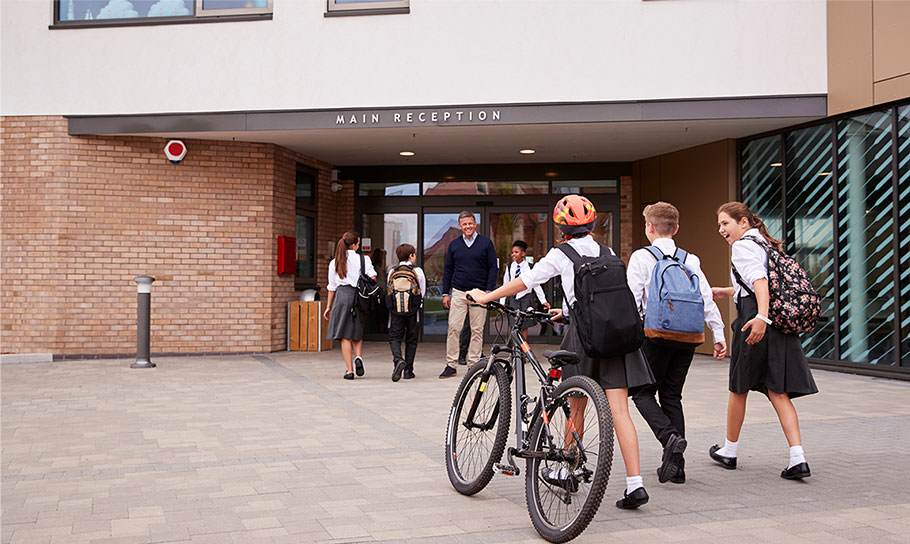
There's been a fall of 11,000 pupils attending independent schools in January 2025 compared with the same time last year, according to figures released by the Department of Education in June 2025. There's also been a record drop of over 5% in enrolments at reception, year 3 and year 7 – the main intake years. Primary schools have seen the largest impact, with pupil rolls declining by 3.5% between January 2024 and January 2025, compared to 1.7% for secondary schools, according to data from the Independent Schools Council (ISC).
Falling pupil numbers adds to pressure on schools
The drop in pupil numbers - while exacerbated by the introduction of VAT in January 2025 and subsequent increase in employers’ National Insurance contributions and removal of business rates relief to charitable institutions - is also indicative of longer-term trends, including a falling birth rate. In certain locations, most notably central London, we've also seen the removal of non-dom tax status impacting enrolments as people leave the city.
Like all businesses, schools have also faced a significant increase in their operational costs, most notably staff and energy costs – challenges we've covered in more detail previously.
The level of impact of these headwinds on independent schools will be felt on a case-by-case basis. Geography, demographics, competition, market reputation and size of school all play a part with smaller, stand-alone schools often being more vulnerable.
With over half of independent schools having fewer than 285 pupils and one quarter of schools have fewer than 153 pupils, there are many who are now experiencing a level of financial stress.
Further changes ahead for independent schools
Further changes are yet to come. The Government has announced its intention to introduce higher business rates for properties with rateable values of £500,000 and above, while properties below the threshold see reduced rates. This is part of reform, announced in the 2024 Autumn Budget, aimed at supporting the high street and encouraging investment and growth. However, this will inevitably impact the majority of independent schools, whose properties will fall above the £500,000 threshold.
There are also changes being proposed to the capital goods scheme, which requires VAT to be looked at across a longer period of 10 years for land and buildings. The threshold for this scheme is expected to rise from £250,000 to £600,000. While it's expected that this will be a prospective change only, and therefore one of administration, this is yet another area of uncertainty across the taxation environment for schools.
Operational restructuring
Independent schools are working hard to ensure that their business model remains sustainable and can withstand these challenges. Many schools will have spent significant time investigating alternative income streams, for example, opening nurseries or repurposing or renting/selling buildings or land where applicable. They'll also have been busy identifying cost-cutting opportunities, such as reducing staff numbers, cutting back subject choice or reducing bursaries.
Care must be taken that measures don't affect the quality and attractiveness of the school’s offering to prospective parents, or if selling assets, affect the school’s ability to raise finance secured on land or property. If a school is a registered charity, the charitable objectives must also continue to be met.
Cash flow forecasting is essential
When navigating change, granular cash flow forecasting becomes more important than ever. It allows schools to model various scenarios based on different pupil numbers, measuring and assessing the impact of additional revenue streams or cost-cutting programmes. Including a sensitivity analysis allows management to understand how cash balances could be affected by circumstances such as an increase in the late payment of fees.
Careful forecasting and scenario analysis, using real-life evidence from restructurings in the sector, will aid informed decision making, help identify realistic and impactful KPIs, and provide greater clarity on areas of potential stress, enabling a school to take pre-emptive action.
How to approach lenders
Schools may need to approach lenders to raise new capital or refinance existing facilities. Options to consider when looking to raise new finance include:
- secured lending – backed up by a valuation from specialists in the independent school sector
- sale and leaseback transaction – selling an asset to an investor and taking a lease for a fixed period at market rent
- ground rent transaction – selling the freehold and taking back an ultralong-dated lease at a rent lower than sale or leaseback levels.
Raising new capital or refinancing can be more challenging when a business is facing some financial distress. Schools will find that lenders will want to see robust stress testing of forecast cash flows to gain comfort that debt repayments will still be managed under a wide range of circumstances, or if pupil numbers continue to fall.
Optimising your capital structure, presenting your credit story in the best light and giving lenders comfort in any financial forecasts can be key.
Surge of M&A activity
Merging with a larger school group can bring vital investment for an individual school, as well as access to shared assets and services such as HR, IT and finance, and more robust recruitment channels. As financial pressures hit schools, there's been a surge of merger and acquisition (M&A) activity in the sector.
Mergers can take several forms. The most common in the market right now is the creation of new groups of schools operated by a single charity, or mergers between charitable organisations. We're also increasingly seeing charitable prep schools being taken on by senior schools (Radley College merging with the Prep Schools Trust being a high profile example), or charitable schools being acquired by a commercial for-profit education provider.
We do expect M&A activity to stabilise, but the shape of the independent sector will be altered, with a significant number of schools joining charitable or for-profit groups.
M&A always brings cultural, strategic, legal and financial complexities however, and you should seek guidance from an experienced advisor in this area.
How we can help independent schools find a way forward
If the numbers are not looking promising, the earlier you seek advice, the more control and choice you have over what the future holds for your school. We can assist through our restructuring and corporate finance professionals.
Strategic support: An example of how we can add value is supporting clients with strategies that maximise the impact of employee benefits in the face of rising costs. Whether it’s through benefit renegotiation, restructuring, or by optimising salary sacrifice options, we uncover ways to reduce expenses without compromising the overall package of employee offerings.
M&A advisory: We've advised extensively on transactions in the sector, conducted extensive mapping of all the independent schools in the country and have a deep knowledge of the buyers in the sector. We're proud to have recently won Financial Advisor of the Year Award at the 2024 Education Investor Awards.
Restructuring help: There may be ways to save the school even if the underlying company is no longer viable and a restructuring adviser can guide you through this. In the event that the unfortunate decision is taken that the school itself can't continue, then you'll need support producing a plan for closing the school and the solvent or insolvent winding down of the company.
In difficult times, it's vital that schools explore all options available. We can help provide certainty and a course of action, including having a robust ‘Plan B’, through contingency planning. Our internal expertise and services span all restructuring options, debt advisory, acquisitions and mergers, and tax advice.
For more information and advice, contact Alistair Wardell, Andrew Frame or Irena Scullion.






